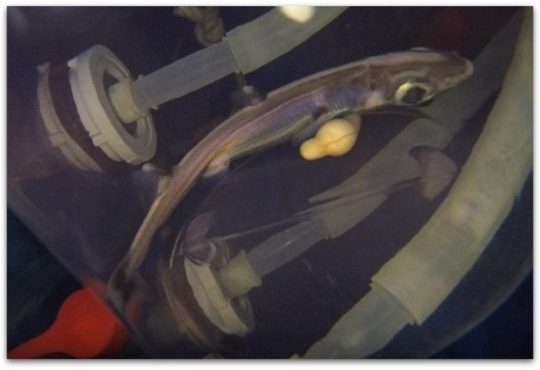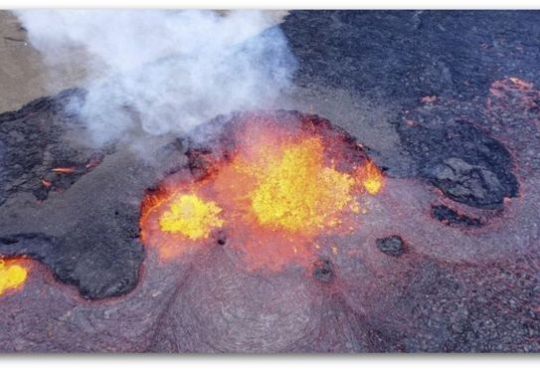
Areas of unusually warm water in the Pacific Ocean, known as blobs, have been wreaking havoc on marine ecosystems since 2010, according to a new study by an international team of researchers based on detailed computer simulations.
The study suggests that these droplets are associated with a reduction in aerosol emissions in China. That policy, aimed at improving environmental conditions, may have inadvertently contributed to those marine heat waves.
Aerosols, the tiny airborne particles emitted by factories and power plants, effectively reflect sunlight back into space, helping to keep the atmosphere cooler.
The reduction in these particles has left the Pacific more exposed to the sun’s heat, combined with rising temperatures due to human-caused global warming.

A chain reaction
“We found that the rapid reduction of aerosols over China causes atmospheric circulation anomalies beyond its source region, promoting significant surface warming in the northeast Pacific, which provides favorable conditions for extreme ocean warming,” the researchers state in their paper.
Clean air legislation introduced in China in the 2010s has successfully reduced pollutants and improved air quality. For example, sulfur dioxide emissions were reduced by approximately 70% between 2006 and 2017. However, this reduction has unintended consequences for climate change.
The researchers used existing climate models to simulate the distribution of heat in the Pacific Ocean, comparing different scenarios for emissions from China. Models that mirrored actual gas emissions showed hot spots in the northeast Pacific, where the droplets were found.
The study suggests that the absence of aerosols not only had direct radiative effects, but also caused a chain reaction of warming, changing weather systems and reducing wind speeds in certain regions of the Pacific, exacerbating the overheating of ocean droplets.

Aggravated risks
While multiple factors, including natural variations, influence these complex weather systems, China’s reduction in emissions appears to increase the likelihood of these warming events, contributing to the broader warming trend.
These droplets have devastating effects on marine life, causing mass die-offs of fish, seabirds and numerous marine organisms. In addition, they lead to toxic algae blooms, which block the sun and deplete oxygen, further damaging ecosystems.
A new study highlights the delicate balance and numerous factors influencing our planet’s climate systems. Understanding these dynamics is key to predicting future changes and mitigating their impacts.
“Our findings provide important insight into the mechanisms of oceanic and atmospheric change in the North Pacific Ocean, emphasizing the need to consider the exacerbated risks resulting from reductions in anthropogenic aerosol emissions in climate change impact assessments,” the researchers conclude.








